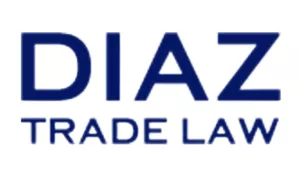The current trade environment presents new challenges and risks to businesses. From regulatory shifts to geopolitical pressures, importers are navigating a maze of uncertainty. The good news? Importers are not without options. Here are a few strategies to consider:
Understand Your Data
If you are not on top of what's happening in your business, you are operating partially in the dark. Ensure your team is using the Automated Commercial Environment (ACE) Portal and is actively auditing broker data for accuracy. Understanding your trade data helps uncover discrepancies, spot trends, and identify compliance gaps before CBP does. Contact us to learn more about our importer report card!
Know Your Supply Chain
Understanding who is supplying you with a product is not enough, you also need to know who is supplying them. You should have a comprehensive understanding of your supply chain that includes documentation of the various tiers of suppliers. Detailed documentation can help identify gaps and high-risk areas that may need to be revisited.
Educate Your Team
Compliance can't rest on one person. A well-informed team is your first line of defense—and your biggest asset. Regular training on trade updates, documentation best practices, and enforcement trends helps mitigate risk across the board and can optimize potential duty savings.
Vendor Compliance
Suppliers are a key business partner that should assist in your compliance strategy. Ensure your suppliers are certifying country of origin, documenting component sourcing, and keeping proper records. This documentation will be essential if you're ever audited, and may allow you to minimize tariffs depending on the country of origin of your goods.
Partner with Your Broker
Your customs broker should be more than just a filer—they should be a strategic ally. Engage in regular conversations, align on goals, and ensure they understand your business model. A well-informed broker can anticipate issues and offer solutions before they become costly problems. However, ensure that you are not over relying on your broker—YOU are the importer and are ultimately responsible for ensuring compliance with all CBP regulations.
Check Your Bond
A critical but often overlooked area—your customs bond. As your import volume or risk profile shifts, it may be time to reevaluate your bond amount and conditions. An inadequate bond can delay shipments or cause compliance headaches, especially under increased CBP scrutiny. Consider taking advantage of CBP's periodic monthly statements which allows Brokers and importers who are Automated Broker Interface (ABI) filers to pay designated Entry Summaries for a given month on one statement. Importers may also request bond saturation warnings from their broker so that they have adequate time to secure a new bond before the existing one becomes insufficient.
Leverage Your Network
Tap into experienced advisors who can offer actionable strategies that others in your industry are already using successfully. Be sure to double check what you learn, as trade advice circulates fast but not all of it is accurate.
Diversify
Diversification isn't just smart—it's essential. Avoid heavy investment in any single location to avoid total reliance on that market if trade policy shifts. If you do shift location strategy, ensure that you are staying on top of your country of origin documentation.
Outsource
If your internal resources are stretched thin, outsource key compliance and/or audit functions. Your service providers often have access to valuable tools, market intelligence, and technology that you do not.
Optimize Transportation
Transportation costs remain a major line item for importers. Work with your logistics providers to ensure both international and domestic transportation are as efficient and cost-effective as possible.
Explore Options to Legally Minimize Duties
There are many strategies available today that can be leveraged to immediately minimize duties. From duty drawback to tariff engineering to utilizing free trade agreements, there are a number of strategies to explore. Be sure to work with a trusted expert to avoid inadvertent duty evasion.
Stay Compliant
Now is not the time to cut corners. Proactively reviewing your compliance program and conducting internal audits can help avoid costly penalties down the line. Trade policy changes frequently, so compliance cannot be a one-time event but rather a continuous process.
Contact Diaz Trade Law for Assistance Developing Your Strategic Plan
In a shifting trade environment, proactive strategy is your best defense. Diaz Trade Law has years of experience and a strong track record in setting up businesses of all sizes for success. Whether you are looking to minimize duties, set up a compliance program, or conduct an audit to uncover gaps, we can help.
Read more:
- Why You Need Your VERY OWN ACE Account
- Webinar: ACE: Auditing Your Import History
- Webinar: Navigating Tariff Challenges: Mitigation Tools & Tactics
- Webinar: Building and Maintaining an Effective Import Compliance Plan
- From Chaos to Compliance: A Guide for Importers
- Webinar: Introduction to Importing
- Why Pre-Compliance is a Must
- Bloomberg Law: CBP Recordkeeping Requirements – Retention, the (a)(1)(A) List, and More
- Bloomberg: What is an Importer's 'Reasonable Care' Standard?
The content of this article is intended to provide a general guide to the subject matter. Specialist advice should be sought about your specific circumstances.


